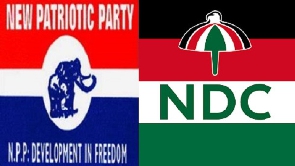Every election year in Africa brings with it a unique set of challenges and opportunities. One of the most pressing issues is the amount of money spent on campaigns and elections, which can have a significant impact on the nation's economic growth and development.
This piece will explore the effects of election-year spending on African economies, and how it can be managed to ensure long-term economic stability.
Election year spending can have a significant impact on the economic growth and development of African nations. The money spent on campaigns and elections is often diverted away from other important areas such as infrastructure, education, and healthcare.
This can lead to a decrease in economic growth and development, as resources are not being used to their full potential. Additionally, the money spent on campaigns and elections can lead to an increase in public debt, as governments are forced to borrow money to cover the costs. This can further hamper economic growth and development, as debt payments can take away from other important investments.
Furthermore, election-year spending can lead to an increase in corruption and mismanagement of funds. As candidates and political parties compete for votes, they often resort to bribery and other forms of corruption in order to gain an advantage. This can lead to a misallocation of resources, as funds are not being used for their intended purpose. Additionally, it can lead to an increase in public distrust of the government, as citizens become aware of the corrupt practices taking place.
In order to ensure long-term economic stability, African nations must take steps to manage election-year spending. One of the most effective strategies is to implement strict regulations on campaign finance. This includes setting limits on the amount of money that can be spent on campaigns and elections, as well as requiring candidates and political parties to disclose their sources of funding.
Additionally, governments should create independent oversight bodies to monitor campaign finance and ensure that all regulations are being followed.
Another important strategy is to increase public awareness about the effects of election-year spending. Governments should use media campaigns to educate citizens about the potential impacts of excessive spending on campaigns and elections. This can help to reduce public demand for expensive campaigns, as citizens become more aware of the potential consequences.
Additionally, governments should create incentives for candidates and political parties to focus on policy issues rather than expensive campaigns. This can help to ensure that resources are being used for their intended purpose, rather than being wasted on costly campaigns.
In conclusion, election year spending in Africa is always a threat to national economic growth and development. In order to ensure long-term economic stability, African nations must take steps to manage election-year spending by implementing strict regulations on campaign finance and increasing public awareness about the effects of excessive spending.
By taking these measures, African nations can ensure that resources are being used for their intended purpose, rather than being wasted on costly campaigns.
Opinions of Tuesday, 3 January 2023
Columnist: Abdul-Razak Lukman



















